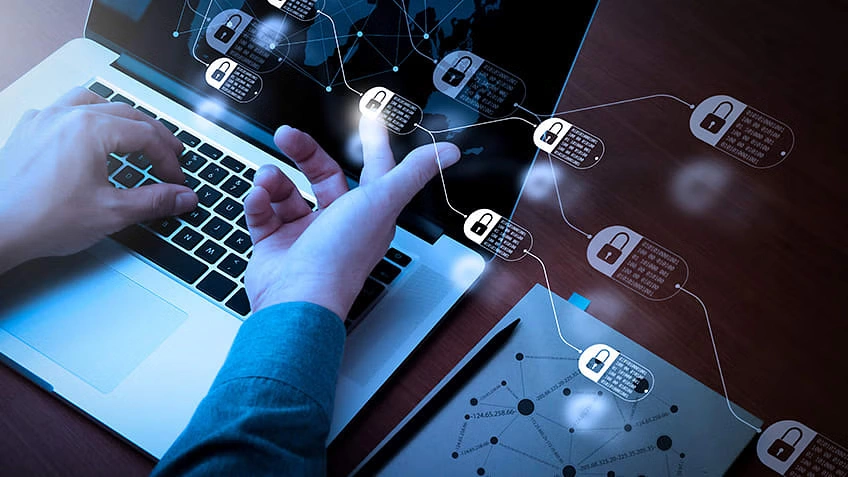Blockchain technology has gained significant attention in recent years, often associated with cryptocurrencies like Bitcoin. However, the potential of blockchain extends far beyond digital currencies. It is a groundbreaking innovation that is transforming a wide range of industries, from finance and healthcare to supply chain management and beyond. In this blog, we will explore how blockchain works and how its applications are reshaping industries, making processes more secure, transparent, and efficient.
What is Blockchain?
At its core, blockchain is a decentralized, distributed ledger technology that enables secure and transparent record-keeping. Unlike traditional centralized databases, where data is stored in one location controlled by a central authority, blockchain distributes data across a network of computers (nodes). Each “block” in the chain contains a batch of transactions that are validated by network participants through a consensus mechanism. Once a block is added to the chain, it cannot be altered, making blockchain highly secure and tamper-resistant.
This feature of immutability, combined with decentralization, is what makes blockchain so appealing for a wide range of applications. The technology provides an unprecedented level of transparency, accountability, and security, which is why many industries are eager to integrate blockchain into their systems.
Blockchain Applications Across Industries

1. Financial Services and Payments
Blockchain has revolutionized the financial services industry by enabling faster, cheaper, and more secure transactions. Traditional banking systems can be slow and costly, especially for cross-border payments, which often involve multiple intermediaries and exchange rates. Blockchain eliminates these intermediaries, allowing for direct peer-to-peer transactions.
Cryptocurrencies like Bitcoin and Ethereum are some of the most well-known applications of blockchain in finance. However, blockchain technology also powers decentralized finance (DeFi) platforms, which offer services like lending, borrowing, and trading without the need for traditional banks. By using smart contracts—self-executing contracts with the terms of the agreement directly written into code—DeFi platforms allow for automatic execution of transactions based on predefined conditions, reducing the risk of fraud and ensuring transparency.
2. Supply Chain Management
Blockchain is also transforming supply chain management by providing an immutable and transparent record of every transaction or movement of goods along the supply chain. This increased transparency ensures that all stakeholders, from manufacturers to consumers, can trace the origins of products and verify their authenticity.
For example, in the food industry, blockchain can track a product’s journey from farm to table, reducing the risk of food fraud, contamination, and unethical sourcing. Similarly, in industries like pharmaceuticals, blockchain helps to track the provenance of drugs, ensuring that counterfeit or substandard products don’t enter the supply chain, improving overall consumer safety.
3. Healthcare

The healthcare industry is another sector benefiting from blockchain technology. Medical data, such as patient records, prescriptions, and treatment histories, are often scattered across different systems, making it difficult to access and manage. Blockchain provides a secure, centralized platform for storing medical data that is accessible only to authorized parties, ensuring both privacy and security.
Moreover, blockchain can help reduce fraud in healthcare by providing an immutable record of medical billing and claims. By using blockchain, healthcare providers can ensure that medical records are accurate, up-to-date, and tamper-proof, leading to better patient outcomes and more efficient care.
4. Real Estate
In the real estate industry, blockchain is streamlining property transactions by eliminating the need for intermediaries such as brokers, title companies, and lawyers. Smart contracts can automatically execute property transfers when certain conditions are met, reducing paperwork and the time required to finalize deals.
Additionally, blockchain can be used to tokenize real estate assets, allowing for fractional ownership. This opens up opportunities for investors to purchase shares in properties, making real estate investment more accessible to a broader audience and improving liquidity in the market.
5. Voting and Governance
Blockchain has the potential to revolutionize voting systems by making elections more secure, transparent, and tamper-resistant. Traditional voting systems can be vulnerable to fraud, manipulation, and voter suppression. With blockchain, votes can be securely recorded on an immutable ledger, reducing the risk of fraud and ensuring that each vote is counted accurately.
In addition to voting, blockchain can be used for broader governance purposes. For example, it can be used to enable decentralized decision-making in organizations and communities, where decisions are made based on transparent and verifiable votes, ensuring accountability and fairness.
The Challenges of Blockchain Adoption
While blockchain technology offers tremendous potential, its adoption is not without challenges. One of the main hurdles is scalability. As the number of transactions increases, blockchain networks can become slower and more expensive to maintain. However, ongoing research and development are working toward solving these issues, with solutions like sharding and layer-two protocols showing promise in improving scalability.
Another challenge is the regulatory landscape. As blockchain applications evolve, governments and regulatory bodies are struggling to keep pace with the rapid growth of the technology. Clearer regulations and frameworks are needed to ensure that blockchain applications are compliant with local laws and can operate seamlessly across borders.
The Future of Blockchain

The future of blockchain looks promising, with more industries exploring its potential to solve real-world problems. As blockchain continues to mature, we can expect to see further integration into various sectors, leading to greater efficiency, security, and transparency.
From enhancing financial transactions to improving supply chains and revolutionizing healthcare, blockchain is changing the way businesses operate and interact with customers. As the technology evolves, it will likely become an integral part of everyday life, unlocking new opportunities and transforming industries for the better.
Conclusion
Blockchain technology is not just a buzzword; it is a revolutionary force that is changing the game across industries. Its ability to provide transparency, security, and efficiency is reshaping how businesses operate, interact with customers, and manage their data. As blockchain continues to develop, its potential to drive innovation and solve complex problems will only grow. Understanding its applications and benefits is key to unlocking its full potential and staying ahead in an increasingly digital world.


